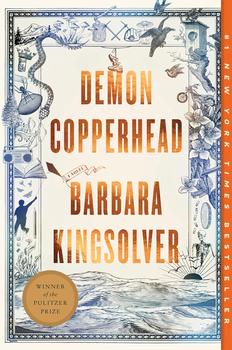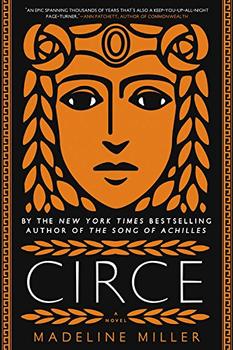Summary | Excerpt | Reviews | Beyond the book | Read-Alikes | Genres & Themes | Author Bio

Jon Clinch's astonishing 2007 debut, Finn, focused on Pap Finn, the violent, alcoholic patriarch who featured peripherally in The Adventures of Huckleberry Finn. Finn proved a respectful companion to Mark Twain's original, set in the Antebellum Era. The novel sympathized with the plight of Pap Finn, and soberly reflected on the arbitrary violence of the time alongside issues of racism, fatherhood, alcoholism, and misogyny.
In Marley, released in October 2019, Clinch has identified another classic character worth re-examining: the penitent, chain-rattling spectre of Jacob Marley, Ebenezer Scrooge's deceased business partner, from Charles Dickens' A Christmas Carol (See Beyond the Book). Clinch expertly cultivates Marley's character, elaborating the origins of one of English literature's most famous misers with the same forensic precision that made Finn so alluring.
Marley recounts the tale of Scrooge and Marley from their first encounter in 1787, through the history of their business dealings and romances, to the end of their infamous partnership in 1836.
From the instant the pair meet as schoolboys, it's clear Marley is a conniver. In their first encounter, he orchestrates a deception to bind Scrooge to his will for years to come. Throughout the novel he also assumes a variety of identities to cheat others out of their money. He has at his disposal a gallery of amusingly titled guises, such as Inspector Bucket, so that he might become "all things to all men." These personas allow Marley to earn the trust of others and effectively swindle them; they also nod to Dickens' own characters, who were often caricatured according to employment or disposition.
Scrooge's personality, meanwhile, is less erratic. At the novel's start, he is described as "somewhat of a cipher" and "remarkable mainly in his unremarkableness." Scrooge's love is for numbers. His role is that of Marley's enabler, helping him maintain his dubiously acquired wealth. "Marley has not patience for numbers," whereas Scrooge is memorably described as an "automatic counting machine" with a heart of stone.
As the narrative develops, however, the partners' bond deteriorates. Marley toys with the emotions of Scrooge's sister Fan, and Scrooge falls under the sway of Fan's best friend Belle. Softened by his love for Belle, Scrooge starts to disagree with Marley about how to manage their business dealings, which are intertwined with the Transatlantic slave trade, and the men engage in an increasingly vitriolic rivalry. The story darkens and becomes a foreboding prelude to A Christmas Carol.
Structurally Clinch opts for a linear narrative, alternating viewpoints between Marley and Scrooge. Though this might seem simplistic, it allows for an enjoyable, uncomplicated read, whilst also serving to effectively chronicle its principle characters' doom-march.
Stylistically the novel recalls Dickens' humorous, quirky prose. However, it eschews the redemptive character arcs he was known for in favour of a darker resolution, which is understandable given Scrooge's redemption takes place following the events portrayed in Marley.
Regarding plotting, Clinch makes impressive use of the source material. Marley revisits and elaborates on pivotal episodes from the original, such as those surrounding the untimely plight of Fan. Viewing such scenes from a different perspective, Clinch offers readers an alternative understanding of Scrooge's motivations and actions in A Christmas Carol.
In all this, Clinch's respect for the original persists. Marley elaborates the minutiae of A Christmas Carol, without resorting to contrivance. Clinch displays an uncanny ability to link the stories in imaginative ways and clarify mysteries of the original, from the empty rooms in Scrooge's offices to his strange relationship with his nephew.
That the author also finds space to scrutinise the perverting societal and psychological consequences of unfettered capitalism is impressive. Slavery's relationship to European wealth is explored, with most of the action taking place between The Slave Trade Act (1807) and The Abolition of Slavery Act (1833); the former act prohibited trading slaves within the British Empire, while the latter outlawed slavery altogether. The imagery of bondage is powerfully invoked, bringing to mind the slaves inhumanely chained to each other in the transporter ships Scrooge and Marley trade in for profit.
Like the best of Dickens, Marley works well as populist entertainment and layered social commentary. It is both an enticing period thriller and uncompromising study of the shadow-face of early 19th century society, the squalor Dickens railed against, and the dangers inherent in corrupted entrepreneurship. As a splendidly spiteful tale of depravity and criminality, and a companion to A Christmas Carol, Marley exceeds expectations. Dickens fans and new readers alike will undoubtedly lap it up.
![]() This review was originally published in The BookBrowse Review in October 2019, and has been updated for the
November 2020 edition.
Click here to go to this issue.
This review was originally published in The BookBrowse Review in October 2019, and has been updated for the
November 2020 edition.
Click here to go to this issue.

If you liked Marley, try these:

by Barbara Kingsolver
Published 2024
From the New York Times bestselling author of Unsheltered and Flight Behavior, a brilliant novel which enthralls, compels, and captures the heart as it evokes a young hero's unforgettable journey to maturity.

by Madeline Miller
Published 2020
Winner of the 2018 BookBrowse Fiction Award
The daring, dazzling and highly anticipated follow-up to the New York Times bestseller The Song of Achilles.
I like a thin book because it will steady a table...
Click Here to find out who said this, as well as discovering other famous literary quotes!
Your guide toexceptional books
BookBrowse seeks out and recommends the best in contemporary fiction and nonfiction—books that not only engage and entertain but also deepen our understanding of ourselves and the world around us.